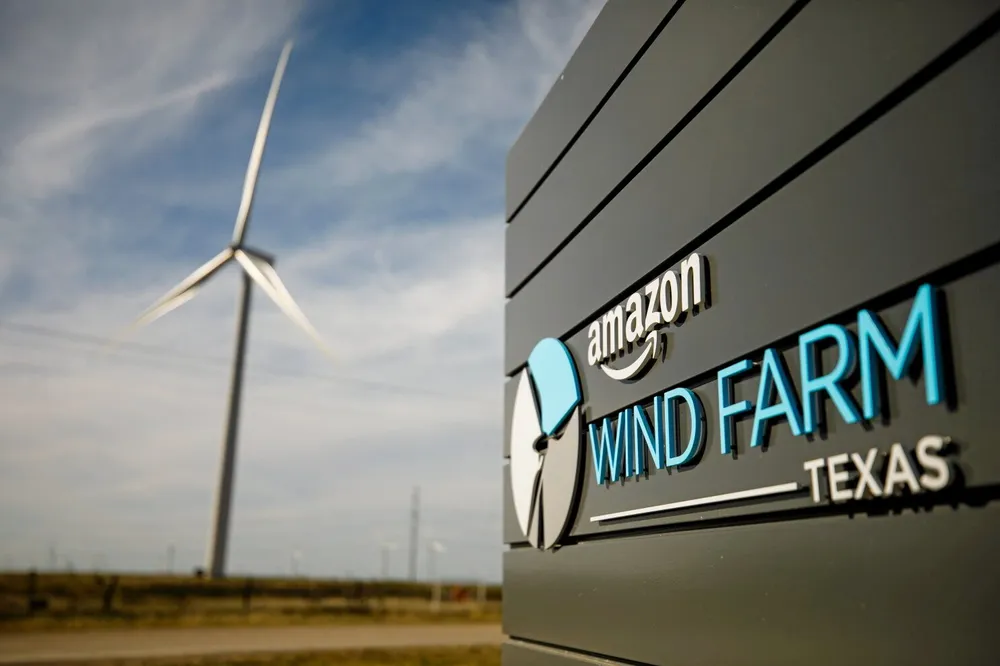Can tech titans help rein back Trump's assault on green power?
Giant names such as Amazon, Google and Meta join clean energy lobbying to ease raid on incentives

US technology giants including Amazon, Google, Meta, and Microsoft have joined the clean energy sector in lobbying Senate Republicans to dial back the aggressive phase-down of federal tax credits sought by President Donald Trump.
It’s a key litmus test for leaders of the industry, among the nation’s highest profile and wealthiest individuals, of whether their efforts to gain his good graces over the past year will pay dividends for their companies.
Private energy consultancies and opposition Democrats have raised concerns that spiking the tax credits prematurely will constrain electric power supply amid increased demand, raising prices and placing the US at a competitive disadvantage with China in the race for artificial intelligence (AI) supremacy.
While forecasts differ, US data centre investment could reach as much as $1trn through 2029. To power those in development, the technology industry has been scrambling to nail down long-term supply deals.
While leading hyper-scalers – Amazon, Apple, Google, IBM, Meta, Microsoft, Oracle, and Salesforce – prefer to contract solar and wind energy, uncertainty over future availability of new resources for both that require interconnection has led them to pursue nuclear and consider natural gas.
S&P Global Ratings estimates that data centres’ increasing energy requirements will lead to additional natural gas demand of between 3 bcf/d and 6 bcf/d by 2030, from almost none today.
Among corporate and industrial buyers of clean energy, Amazon is the US leader with 20GW of total procured operational and pipeline capacity, then Meta (14GW), Google (9GW), and Microsoft (7.9GW).
Republicans, which have a 53-47 majority in the Senate, are writing their own multi-trillion-dollar tax and spending package called 'One Big Beautiful Bill Act', a name selected by Trump.
At least five Republican senators have publicly expressed concern over tough new restrictions for battery storage, geothermal, solar, and wind projects to access technology-neutral tax credits in the bill that cleared the House of Representatives’ last month.
The technology-neutral credits took effect on 1 January. The House bill does not retroactively change eligibility terms and conditions for clean energy projects that were under construction by the end of last year.
They will still qualify technology-specific tax credits if finished within four years after the year construction began, while those for offshore wind have 10 years.
In contrast, the House bill would require projects to start construction within 60 days of Trump signing it into law to receive the credits, while they would also have to enter commercial operation by 2028.
The IRA requires the credits to begin to sunset in 2032 over four years, or when power generation greenhouse gas emissions decline to 25% of their levels in 2022. Whichever occurs later, a provision Republican fiscal hawks contend will keep the credits into the 2040s, forcing taxpayers to underwrite several trillion dollars in further subsidies.
The letter follows former Trump ally Tesla CEO Elon Musk’s recent public criticism of the House bill as “outrageous” and a “disgusting abomination,” lamenting that “there is no change to tax incentives for oil & gas, just EV/solar.”
He called on the Senate to kill the legislation, which would end investment tax credits for new solar rooftop systems that companies lease or sell.
Tesla’s energy division develops, manufacturers, and sells solar energy systems and battery storage products for commercial, industrial, and residential customers.
With a few exceptions such as Musk and Apple’s Tim Cook, technology chieftains were distant, at best, and in some cases, openly antagonistic, toward Trump in his first term.
After he pulled off a historic political comeback, which they respected, and having soured on the previous administration for its adversarial relationship with the industry, they improved ties to the mercurial Trump. Some of their companies help fund his inauguration.
While the CEOs can only dream of having Musk’s unheard-of access to the Oval Office and Trump’s cabinet during the initial 100 days of his administration, most appear to be – at least for now – on good terms with him.
That partly reflects the transactional Trump’s view that they need him more than the reverse, but also both sides' recognition of the threat China poses to US technology leadership.
Musk since has fallen out with Trump over his criticism of the House bill and for claiming his financial and personal support was critical for his election.
While Trump wants Republicans in the House and Senate to reconcile their differences and get a bill to his desk for signature into law by 4 July, the US day of independence, its cost and impact on numerous federal programmes has complicated lawmakers’ efforts to agree on provisions.
(Copyright)